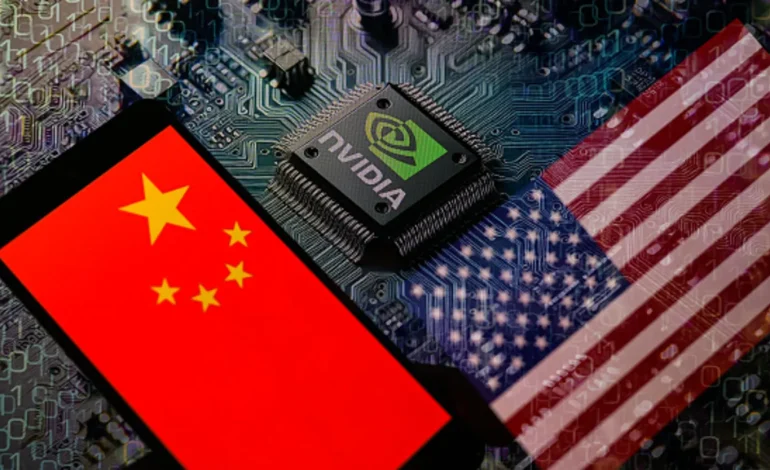The US government’s decision to impose new export restrictions on advanced artificial intelligence (AI) chips is poised to reshape the global semiconductor landscape, CNBC reports.
Last week, the US Commerce Department announced that it would require export licenses for Nvidia’s H20 graphics processing units (GPUs), effectively halting their sale to China. Analysts say this move may create new opportunities for Chinese companies such as Huawei to expand their footprint in the AI hardware market.
Nvidia confirmed it had already stopped exporting the H20 GPUs, a decision expected to cost the company approximately $5.5 billion this quarter. Other chips from US companies like AMD will also be subject to the same licensing requirements. The restrictions are part of a broader US effort to limit China’s access to cutting-edge AI technology, particularly in the context of geopolitical and security concerns.
However, some experts believe the export controls could end up accelerating the growth of China’s domestic semiconductor industry. Analysts point to Huawei and other local firms such as Cambricon Technologies as potential beneficiaries of Nvidia’s retreat from the Chinese market. Cambricon’s shares rose more than 10% in the past week, continuing a trend that has seen its stock gain over 400% in the last year.
“There are several local Chinese companies that produce chips to compete with Nvidia,” said Brady Wang, associate director at Counterpoint Research. “With the new restrictions, demand for their GPUs is expected to increase.”
Huawei, in particular, is viewed as a key player in China’s effort to develop homegrown alternatives. The company’s Ascend 910 GPU series is gaining attention, with the latest iteration, the 910C, reportedly narrowing the performance gap with international competitors. While the Chinese firm is still considered to be a generation behind in terms of chip architecture, analysts note its rapid progress, especially in hardware development.
Despite these advancements, challenges remain. China’s access to advanced chip manufacturing remains limited due to separate US export restrictions. Taiwan Semiconductor Manufacturing Company (TSMC), a major global chipmaker, has complied with US rules limiting shipments to Huawei, compelling Chinese firms to rely more on domestic foundries such as Semiconductor Manufacturing International Corporation (SMIC). Yet SMIC is also subject to controls that restrict access to cutting-edge chipmaking equipment.
“While Huawei has demonstrated strong design capabilities, there are supply constraints due to limited foundry capacity and restricted access to advanced manufacturing tools,” said Phelix Lee, equity analyst at Morningstar.
He expressed skepticism about whether Chinese foundries can scale up production to meet the potential demand for H20 alternatives in the short term.
Nevertheless, existing inventories of Nvidia’s chips may cushion the immediate impact of the export controls. According to reports, Chinese firms had already placed orders for up to $16 billion worth of H20 chips earlier this year. These stockpiles could give local chipmakers more time to ramp up production and further refine their technology.
The effectiveness of the export restrictions themselves remains a subject of debate. A report from semiconductor research firm SemiAnalysis noted that despite US efforts, Huawei’s chips still contain components and tools sourced globally, including from South Korea, the US, and Japan. The firm’s Ascend GPUs are reportedly assembled using inputs from various international suppliers, indicating that some workarounds to export rules may exist.
Paul Triolo, a partner at strategic advisory firm DGA Group, argued that the controls have done more harm to US chipmakers than to their Chinese counterparts.
“These measures have primarily damaged US companies, including Nvidia, while having limited impact on China’s ability to develop advanced AI models,” he said.
He added that the restrictions may inadvertently be fostering innovation within China by encouraging firms to reduce reliance on US technology.
Further regulatory developments may be on the horizon. The Biden administration is reportedly considering new “AI diffusion rules,” which could expand the scope of existing restrictions on high-performance chips. Analysts will be closely watching how these additional controls affect both US firms and the global AI chip supply chain.










The latest news in your social feeds
Subscribe to our social media platforms to stay tuned